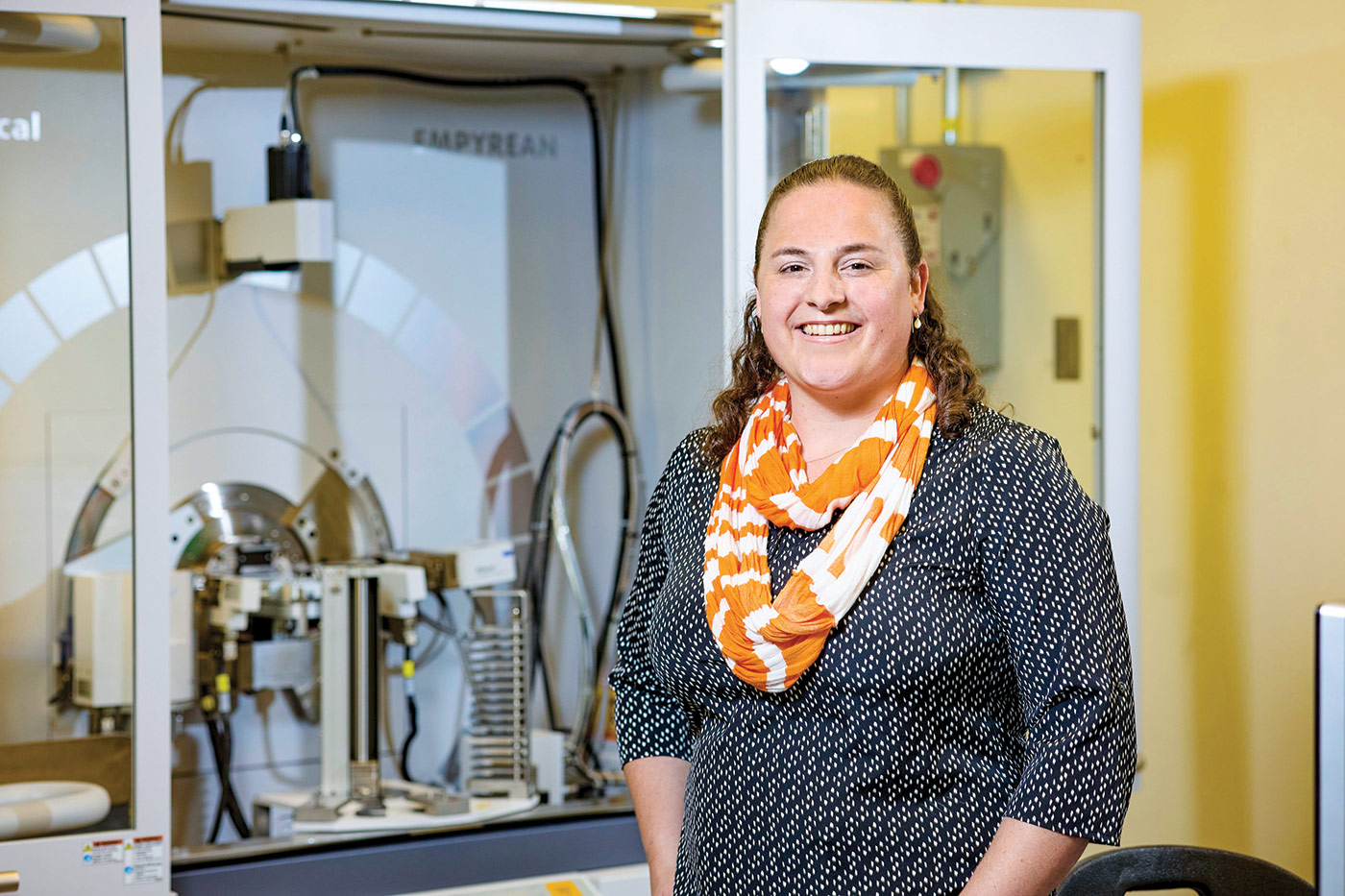By David Goddard. Photography by Shawn Poynter.
Hydrogen, to put it mildly, is a key building block of the universe. It fuels the sun and other stars, is an important part of organic compounds, and plays a key role in the development of alternative energy sources.
While hydrogen is the least complex of atoms, with just one electron and one proton, fully understanding it and gaining insight into how it can be better used requires some of the most powerful scientific devices and methods. Assistant Professor Katharine Page in the Department of Materials Science and Engineering is part of a multi- university project that seeks greater understanding of hydrogen and its potential uses. She explains one issue in unlocking its secrets in a way relatable to many UT alumni: “Neutron scattering is a great way to interact with the atomic structure of an element. But a hydrogen atom is very basic.
Trying to glean information is a lot like placing a marble on at midfield in Neyland Stadium and then trying to hit it with a beam. If you can, you gain a lot of information, but it requires a high level of sensitivity.
”Gaining that understanding opens up a world of possibilities. “Success would be identifying key characteristics and mechanisms that make a material a great conductor,” Page said. “That could improve the transportation of energy by degrees, lead to new technologies, and even improvements in things like fuel cells and batteries, allowing remote or developing areas to have access to power.”
She points out that better energy transportation could lead to improvements in the performance of renewable energies like solar, wind, and water.
Page’s team has already had beam time at Oak Ridge National Laboratory’s Spallation Neutron Source, where they will do their neutron scattering work. Her work is part of an overall project, Hydrogen in Energy and Information Sciences, led by Northwestern University’s Sossina M. Haile. It is one of several US Department of Energy projects known as Energy Frontier Research Centers, which bring together researchers from multiple universities to tackle big issues.
…A hydrogen atom is very basic. Trying to glean information is a lot like placing a marble on at midfield in Neyland Stadium and then trying to hit it with a beam.”
In addition to Page and Haile, the project involves faculty members from the Colorado School of Mines, Florida State University, the Massachusetts Institute of Technology, and the University of Illinois Urbana–Champaign. The overall project received around $12 million in DOE funding, of which Page will receive $785,000. Part of the award has allowed her to fund a student worker, Kennedy Agyekum, to help with her particular part of the project.
“Kennedy’s from Ghana, and his flight here was the first time he’s ever been on an aircraft,” said Page. “He went with me to a kickoff event in Chicago and marveled at the cityscape. The cool thing is that the very thing we’re working towards on this project—energy expansion and security through things like better fuel cells and batteries—is something he can then implement in Ghana. It’s a win-win.” For society, for the planet, and for future generations.
